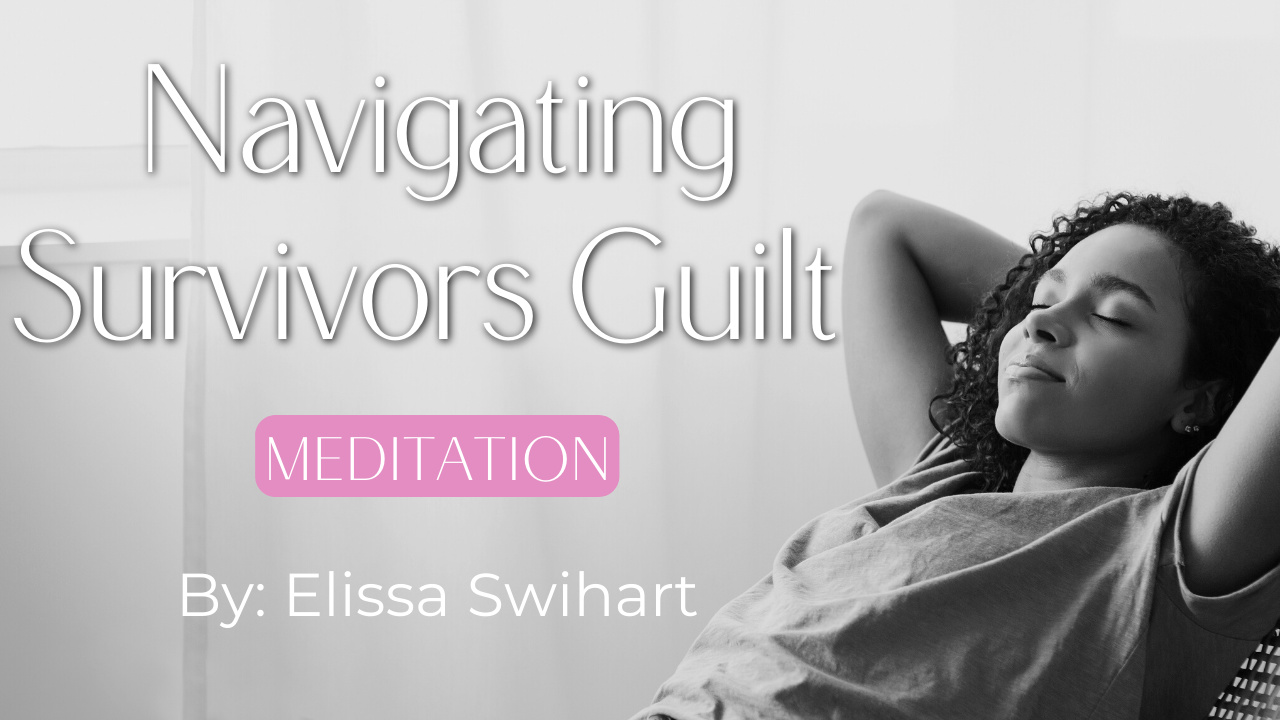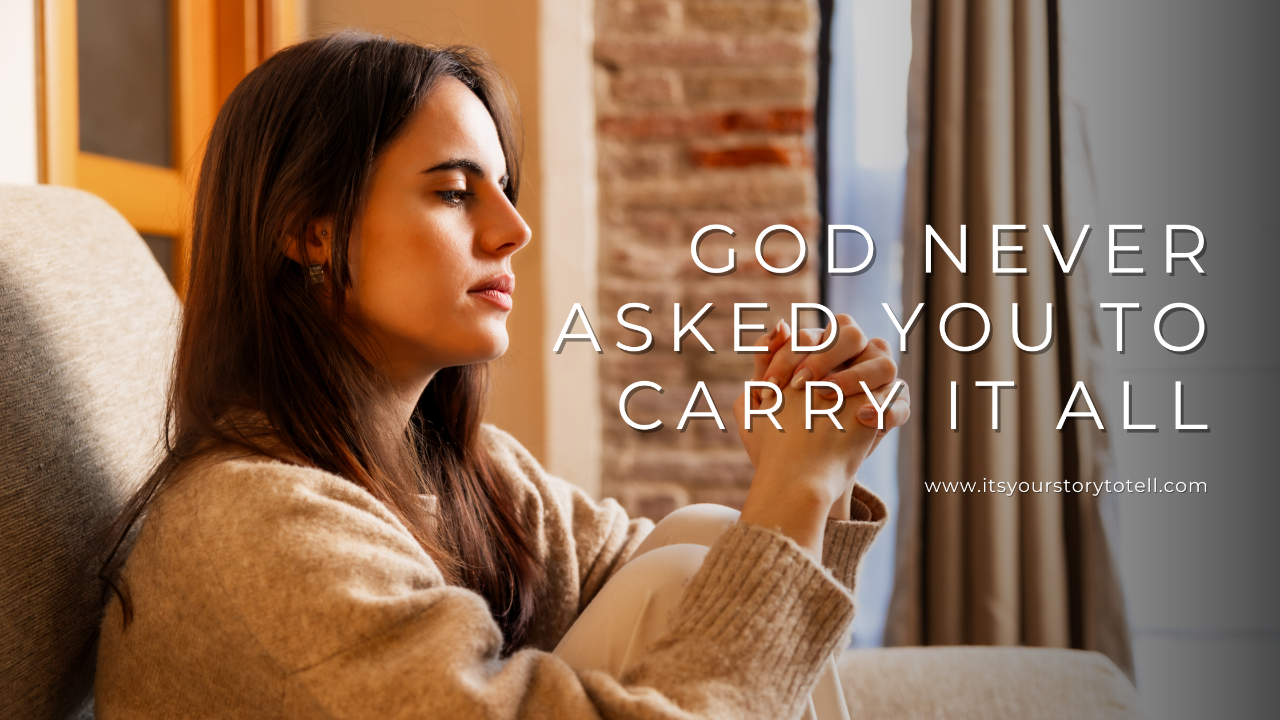Transforming Survivor Guilt
Nov 06, 2023
It's a crisp 45-degree weekend in early November, the sun is shining through the few multicolored leaves that are still hanging on the trees, and pumpkins decorate your neighbors' porches. Normally you'd feel the collective excitement in the air about the upcoming holidays. Instead, you're sitting on your couch unable to move, you sit feeling immense guilt over where you are in life, when so many others are suffering.
It's 8pm and your child is bathed, has a full belly, and you hustle them into their bed while you climb in yourself to snuggle them and read a bedtime story. Normally, you'd go through this process while thinking in the back of your mind about the dishes piled in the sink from dinner that need to be washed, the laundry that needs to be flipped over, and the dog that keeps reminding you she needs to go outside. You attend to the needs of your child on autopilot, consumed with all your other to-do's.
But instead, tonight you climb into your child's bed and hold them, kiss them on their forehead, and cuddle them a little tighter. Your heart feels heavy wondering why you're so lucky? Why do you get this opportunity to live in what is now a safe place, while others are still living in the midst of tragedy.

If you're feeling guilty while drinking your iced coffee, shopping in our busy grocery stores, and having a safe place to sleep at night, you're not at all alone and you might be dealing with survival guilt. For those of you who may not know what that is or have not realized that you may be experiencing it, let me walk you through it and some tools to help you navigate it.
What is Survivor Guilt?
Survivor guilt is the emotional and psychological response that arises when individuals believe they have done something wrong by surviving a tragic event where others have suffered or perished. It can manifest in various forms, from mild feelings of unease to intense despair. While survivor guilt is most commonly associated with large-scale catastrophes like battlefield deaths or plane crashes, it can also emerge in unexpected situations, as we'll see in the examples below.
Examples of Survivor Guilt
Guilt about Surviving: This is the most typical form of survivor guilt. If you have stayed safe while others around you have suffered, you may feel that you don't deserve your safety and question the fairness of the world. This type of guilt often centers around the belief that you should have been harmed as well.
Guilt Over What You "Should" Have Done: In this scenario, individuals feel remorseful for not having done enough to prevent the tragedy. They may believe that they should have known, tried harder, or taken different actions. There's a sense of inflated failure or responsibility.
Guilt Over What You Did: This type of survivor guilt involves feeling guilty for actions taken during the traumatic event, whether intentional or coincidental. It can lead to self-blame and inner turmoil.
Please check out this week's mindfulness designed to help you to process and navigate survivor's guilt.
🎧Listen Here

Mindfulness can be a powerful tool in processing and navigating survivor guilt, transforming the pain and shame associated with it into a catalyst for making a positive difference. By cultivating self-compassion, acknowledging and accepting one's emotions without judgment, and grounding oneself in the present moment, mindfulness helps individuals gradually release the burden of guilt. Through this process, survivors can harness their inner strength and shared humanity, ultimately channeling their feelings into purposeful action. Mindfulness empowers individuals to find gratitude, and in doing so, it allows them to recognize the privilege and opportunities they possess. This newfound perspective and emotional healing can motivate individuals to use their experiences to make a meaningful impact on the world, whether by supporting others, advocating for change, or contributing to the well-being of those in need.
Steps to Manage Survivor Guilt
Coping with survivor guilt can be challenging, but there are strategies to help individuals work through these feelings:
Ask Who is Truly Responsible: Remind yourself that, in most cases, you are not to blame for the tragic event. Look at the larger forces or circumstances that contributed to it, rather than taking on undue culpability.
Remind Yourself You Can Handle Sadness and Loss: Don't use guilt as a shield to avoid facing the deeper emotions of sadness and grief. Allow yourself to experience and process these feelings in a way that works for you.
Think About How People Who Love You Feel About Your Survival: Recognize that there are people who care deeply about you and are relieved that you're okay. Share your survival with them and allow their support to be a source of strength.
It's Not a Zero-Sum Game: Understand that luck is random, and benefiting from good fortune doesn't mean someone else is being deprived of it. Accept that there's no greater order to events.
Do Something Meaningful for Someone Else: Use your feelings of guilt as motivation for purposeful action. Engage in activities that commemorate, serve, or honor those who were lost, helping to alleviate some of the guilt.
Take Care of Yourself: Prioritize self-care, both physically and emotionally. Eating well, getting enough sleep, and seeking support are essential for healing.
In the face of collective survivor's guilt, like witnessing ongoing global tragedies, similar principles can be applied. Acknowledge your emotions, seek information and understanding, channel your compassion into action, connect with like-minded individuals, and remember that your privilege can be used for positive change.
It's okay to take a step back, breathe, and regroup when faced with the weight of such emotions. Remember that survivor guilt is a natural response to witnessing the suffering of others, and taking care of yourself is essential during these challenging times.
View The Entire Collection
See all our blog posts to discover valuable insights and tools for navigating trauma and healing with guidance and support.












